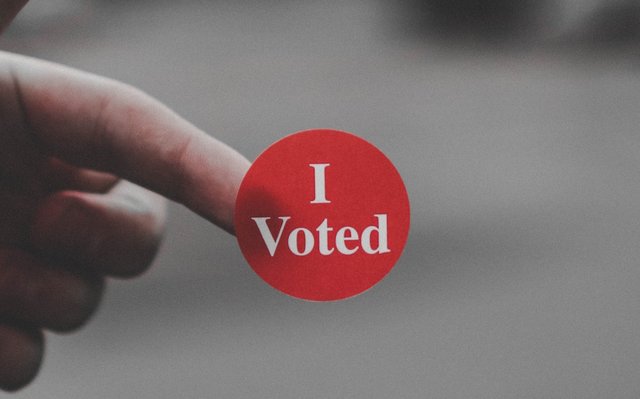Imagine a world where you don’t need a bank to make a secure transaction. Where you don’t need to travel for hours and pay for accommodation to cast a vote. Where you can support a charity 100% anonymously. Where you can easily prove your identity and ownership of any digital asset. Where trust is the fundament of business. This world exists, thanks to blockchain.

In 2019, blockchain has been one of the most widely discussed technology and the number of open positions for blockchain developers or engineers has been skyrocketing. It has not only been adopted by technology companies but also in financial, non-profit, and many other sectors. As we’re reaching the end of the year, it’s time to analyze the most significant trends in the blockchain that will likely shape this industry in 2020.
- Decentralization
Although decentralization is the fundament of blockchain, we decided to present it as the first trend because it will affect more and more sectors in 2020. The distributed nature of blockchain has been widely used in cryptocurrencies, but the opportunities go far beyond that. Online voting is a perfect case - an attacker who would like to cast the same vote twice or get the information about other people’s votes would have to hack the majority of computers in the network, which is practically impossible and has never happened before.
- Tokenization
Tokens have already started disrupting numerous sectors, such as financial and real estate. They’re powerful assets that can effectively verify someone’s ownership rights or prove their identity without revealing it. That’s why tokens have a significant potential to be game-changers in online voting, membership processes, and other situations where there is a need for simple but 100% secure and transparent solutions. It’s important to stress that the more people own tokens, the more powerful they become. If one billion people hold tokens, they can become a tool for identity proof or give the right to membership in an association.
With domino.vote, the governance of tokenized assets can be held remotely, anytime, from any place, using a mobile app. It streamlines token issuance by giving voting rights to holders of standard tokens, without specific infrastructure or costly voting smart contracts. There is no cost-effective code library available which seamlessly integrates voting behavior into tokens. domino.vote is the first and unique solution giving voting rights to any standard token.
STOs
Security Token Offerings (STOs) are the way tokens are issued. They’re asset-backed and make it possible for the holders to directly participate in the financial development of the company value. The utility tokens, on the other hand, are not allowed to include financial rewards. The digital form of STOs facilitates the processes and visibly reduces the operational costs as there is no need for middlemen like banks that manage the processes, in contrast to the Initial Public Offerings (IPOs). We’ve covered tokens and STOs in detail in our blog post about Token Democracy.Blockchain as a Service (BaaS)
Blockchain is commonly considered a revolutionary technology and therefore complicated to understand and develop. Blockchain engineers are in high demand and the growing number of people would like to develop blockchain-based applications but lack skills or resources. In such a case, Blockchain as a Service (BaaS) may come to the rescue. It’s a cloud-based service that lets customers create their own applications or other blockchain-based products, even without any blockchain engineers on board. This trend will likely grow in 2020 and beyond as technology giants such as Amazon or Microsoft have already started investing in BaaS.

Blockchain for good
It’s only a matter of time when more NGOs and charities will turn their eyes on blockchain. It perfectly meets their needs for total transparency and cutting operational costs as much as possible. Donations in cryptocurrencies allow for cutting transfer fees and provide 100% anonymity to those who e.g. support causes that are controversial in their countries. Blockchain-based online voting, on the other hand, ensures immutable results and reducing the cost of travel and accommodation that have to be covered for the board or general assembly meetings. We’ve covered this topic in detail in the blog post Blockchain for Good .Blockchain online voting
Most people associate voting with elections. It’s not surprising - voting is the fundament of democracy and the majority of adults vote regularly. It’s important to stress, though, that voting is not only about elections. In fact, we vote often, even in informal situations. Board and general assembly members, business owners and other stakeholders vote to make crucial decisions in their businesses and organizations.

Still, in most cases, voting in elections requires physical presence and is done the traditional way, in a ballot box. However, the digital transformation has disrupted as traditional sectors as financial (FinTech) or real estate (PropTech), so there is no reason why voting shouldn’t be done online. It’s true that in the past, there has been a conflict between ID verification and the need to resort to data anonymization preserving confidentiality. Fortunately, blockchain is a game-changer, as no other technology offers this level of security, transparency, and immutability. domino.vote uses blockchain to make the entire voting process secure and transparent, from voter legitimization to results and evidence.
To learn more, read adomino.vote’s blog post about online voting.
- Trust
Trust as a blockchain trend for 2020? Yes, because digital trust is a key driver to digital transformation. With the growing number of cyber threats, only safe, secure and trustworthy tools can be successful, therefore trust is more vital than ever in both business and politics.
Blockchain holds the key to trust. It gives the possibility to eliminate middle-men and gives both the individual and universal verifiability.
To learn more, download the domino.vote’s white paper.
Congratulations @dominovote! You have completed the following achievement on the Steem blockchain and have been rewarded with new badge(s) :
You can view your badges on your Steem Board and compare to others on the Steem Ranking
If you no longer want to receive notifications, reply to this comment with the word
STOPDo not miss the last post from @steemitboard:
Vote for @Steemitboard as a witness to get one more award and increased upvotes!
Downvoting a post can decrease pending rewards and make it less visible. Common reasons:
Submit